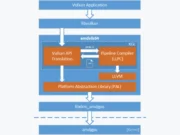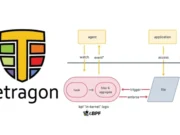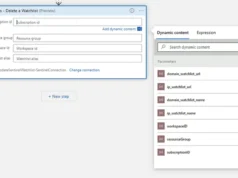CrossLinked is a LinkedIn enumeration tool that uses search engine scraping to collect valid employee names from an organization. This technique provides accurate results without the use of API keys, credentials, or accessing LinkedIn directly!
Table of Contents
Sponsors
Scrape public LinkedIn profile data at scale with Proxycurl APIs.
• Scraping Public profiles are battle tested in court in HiQ VS LinkedIn case.
• GDPR, CCPA, SOC2 compliant
• High rate limit – 300 requests/minute
• Fast – APIs respond in ~2s
• Fresh data – 88% of data is scraped real-time, other 12% are not older than 29 days
• High accuracy
• Tons of data points returned per profile
Built for developers, by developers.
Install
PyPi
Install the last stable release from PyPi:
pip3 install crosslinkedPoetry
Install and run the latest code using Poetry:
git clone https://github.com/m8sec/subscraper
cd subscraper
poetry install
poetry run crosslinked -hPython
Install the most recent code from GitHub:
git clone https://github.com/m8sec/crosslinked
cd crosslinked
pip3 install .Prerequisites
CrossLinked assumes the organization’s account naming convention has already been identified. This is required for execution and should be added to the CMD args based on your expected output. See the Naming Format and Example Usage sections below:
Naming Format
{first.{last} = john.smith
CMP\{first}{l} = CMP\johns
{f}{last}@company.com = jsmith@company.comAdvanced Formatting
New Feature
To be compatible with alternate naming conventions CrossLinked allows users to control the index position of the name extracted from search text. Should the name not be long enough, or errors encountered with the search string, CrossLinked will revert back to its default format.
Note: the search string array starts at 0. Negative numbers can also be used to count backwards from the last value.
# Default output
python3 crosslinked.py -f '{first}.{last}@company.com' Company
John David Smith = john.smith@company.com
# Use the second-to-last name as "last"
python3 crosslinked.py -f '{0:first}.{-2:last}@company.com' Company
John David Smith = john.david@company.com
Jane Doe = jane.doe@company.com
# Use the second item in the array as "last"
python3 crosslinked.py -f '{first}.{1:last}@company.com' Company
John David Smith = john.david@company.com
Jane Doe = jane.doe@company.comSearch
By default, CrossLinked will use google and bing search engines to identify employees of the target organization. After execution, two files (names.txt & names.csv) will appear in the current directory, unless modified in the CMD args.
- names.txt – List of unique user accounts in the specified format.
- names.csv – Raw search data. See the
Parsesection below for more.
Example Usage
python3 crosslinked.py -f '{first}.{last}@domain.com' company_namepython3 crosslinked.py -f 'domain\{f}{last}' -t 15 -j 2 company_nameParse
Account naming convention changed after execution and now your hitting CAPTCHA requests? No Problem!
CrossLinked includes a names.csv output file, which stores all scraping data including: name, job title, and url. This can be ingested and parsed to reformat user accounts as needed.
Example Usage
python3 crosslinked.py -f '{f}{last}@domain.com' names.csvAdditional Options
Proxy Rotation
The latest version of CrossLinked provides proxy support to rotate source addresses. Users can input a single proxy with --proxy 127.0.0.1:8080 or use multiple via --proxy-file proxies.txt.
> cat proxies.txt
127.0.0.1:8080
socks4://111.111.111.111
socks5://222.222.222.222
> python3 crosslinked.py --proxy-file proxies.txt -f '{first}.{last}@company.com' -t 10 "Company"Command-Line Arguments
positional arguments:
company_name Target company name
optional arguments:
-h, --help show help message and exit
-t TIMEOUT Max timeout per search (Default=15)
-j JITTER Jitter between requests (Default=1)
Search arguments:
--search ENGINE Search Engine (Default='google,bing')
Output arguments:
-f NFORMAT Format names, ex: 'domain\{f}{last}', '{first}.{last}@domain.com'
-o OUTFILE Change name of output file (omit_extension)
Proxy arguments:
--proxy PROXY Proxy requests (IP:Port)
--proxy-file PROXY Load proxies from file for rotationContribute
Contribute to the project by:
- Like and share the tool!
- Create an issue to report any problems or, better yet, initiate a PR.
- Reach out with any potential features or improvements @m8sec.



























.webp)
